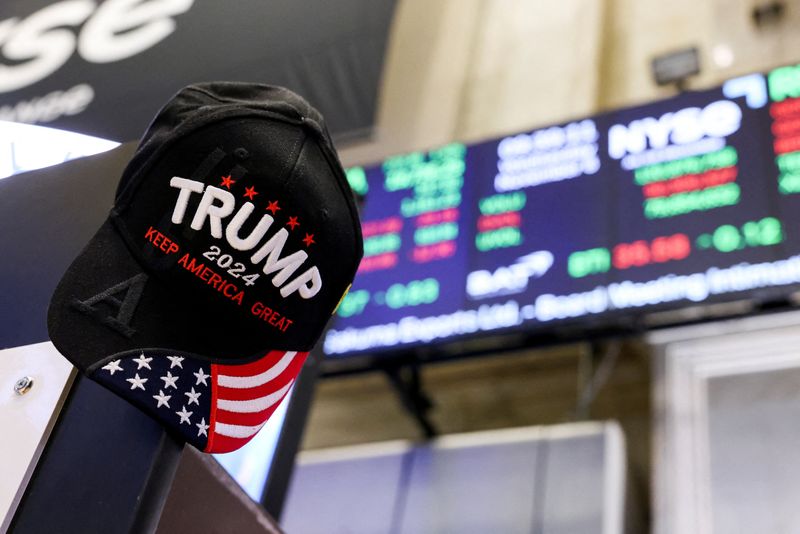(Reuters) - A look at the day ahead in European and global markets from Wayne Cole
The dollar is making the early running on Monday, retaking some of last week's losses helped in part by rare words of support from U.S. President-elect Donald Trump.
While 100% tariffs look rather unlikely, the latest comments marked a change from the Trump of old who openly touted a weaker dollar as a way to fix the U.S. trade deficit. The market took them as suggesting he will not be a source of pressure on the currency.
The Chinese yuan certainly took it badly, touching a three-month low on the dollar.
The dollar is also up around 0.5% on the yen and above 150.50 yen per dollar, overshadowing recently more hawkish musings from Bank of Japan Governor Kazuo Ueda who said the next interest rate hikes were "nearing in the sense that economic data are on track".
Ueda's comments, combined with data showing Japanese business investment rising at a healthy 8.1% clip in the third quarter, encouraged markets to price in a 65% chance the BOJ will hike by a quarter point to 0.5% at its policy meeting on Dec. 18-19.
That is virtually the same market probability that the Federal Reserve will cut rates by a quarter point at its meeting on Dec. 18, though much will depend on what this week's ISM surveys and payrolls data show.
U.S. jobs are expected to have rebounded by 195,000 in November, though the forecast range of 160,000 to 270,000 suggests the risk of an upside surprise. JPMorgan, for instance, is tipping 270,000, with the end of hurricanes and strikes adding almost 90,000 to payrolls. Yet, they also expect the jobless rate to tick up to 4.2% and nearer the Fed dot plot of 4.4%, likely leaving the door open to a December easing.
For the ECB, a cut of 25 bps on Dec. 12 is seen as the absolute minimum and the market implies a 21% chance of 50 bps. Investors have priced 1.6% as the floor for ECB rates, compared with 3.75% for the Fed.
French bonds will need all the rate love they can get after France's far right National Rally raised the risk of a no confidence vote this week that could topple Prime Minister Michel Barnier. Whatever happens, budget repair seems unlikely and the deficit could head to 6% of GDP, perhaps making it more expensive for France to borrow than for Greece.
Oh, and it's worth keeping an eye on the Russian rouble after its near collapse last week as the authorities seemed to condone its decline, maybe figuring a devaluation was worth it to fatten their export earnings from commodities priced in dollars.
Key developments that could influence markets on Monday:

- UK housing prices for Nov; EU unemployment; euro zone, German, UK and French PMIs
- Appearances by ECB President Christine Lagarde, BoE Director Lee Foulger, Riksbank First Deputy Governor Anna Breman, Fed Governor Christopher Waller and Fed NY President John Williams
(By Wayne Cole; Editing by Edmund Klamann)